 Backend Development
Backend Development
 Python Tutorial
Python Tutorial
 How to send emotive email content and attachments in Python
How to send emotive email content and attachments in Python
How to send emotive email content and attachments in Python
1. Preparation
Before we start, we need to prepare some things. First, we need to install Python. Python can be downloaded from the official website.
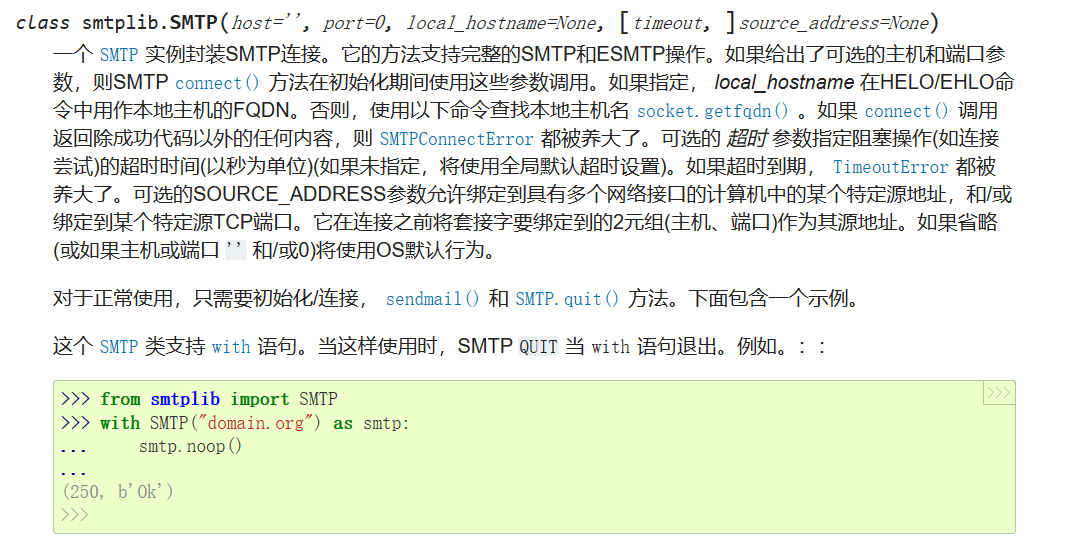
Secondly, we need to install the smtplib library. This can be done in the terminal with the following command:
pip install smtplib
2. Create the email
Before sending the email, we need to create the email. For this, we need to use Python’s email library.
This library allows us to create various types of emails, including HTML formatted emails.
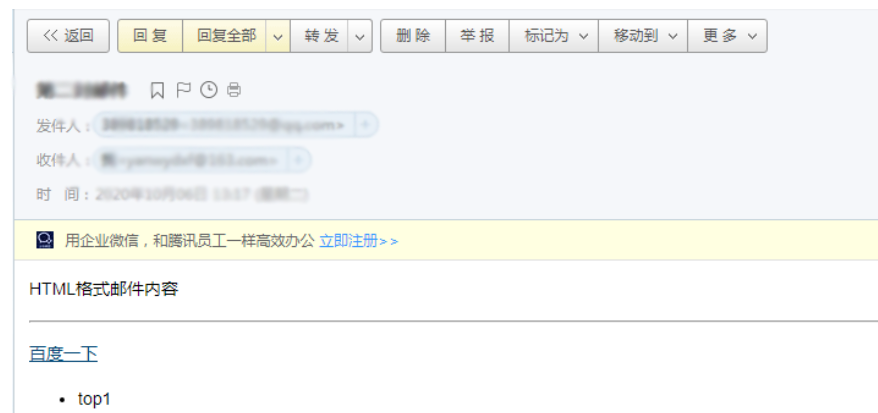
The following is a simple Python program for creating an email in HTML format:
import smtplib from email.mime.multipart import MIMEMultipart from email.mime.text import MIMEText # 创建一个带有HTML正文的新电子邮件 msg = MIMEMultipart() msg['From'] = 'sender@example.com' msg['To'] = 'receiver@example.com' msg['Subject'] = 'HTML邮件' # HTML正文 html = """ <html> <body> <h2 id="这是一个HTML邮件">这是一个HTML邮件</h2> <p>这是一个演示如何发送HTML格式电子邮件的示例。</p > </body> </html> """ # 将HTML正文添加到电子邮件中 msg.attach(MIMEText(html, 'html')) # 使用SMTP服务器发送电子邮件 server = smtplib.SMTP('smtp.gmail.com', 587) server.starttls() server.login('sender@example.com', 'password') server.sendmail('sender@example.com', 'receiver@example.com', msg.as_string()) server.quit()
In this example, we first introduce the necessary Modules: smtplib, MIMEMultipart and MIMEText.
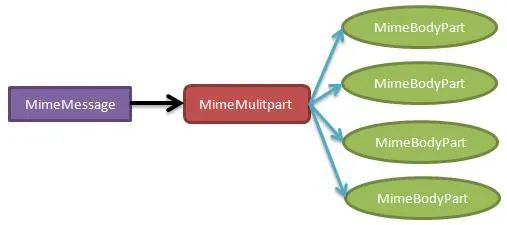
Next, we create a MIMEMultipart instance and set some email headers. The next step is to build an HTML body and then add it to the email using MIMEText.
Finally, we use the SMTP server to send the email.
3. Send an email
After we create the email, we need to send it using an SMTP server.
SMTP server is a protocol used to send email. In Python, you can use the smtplib module to send emails.
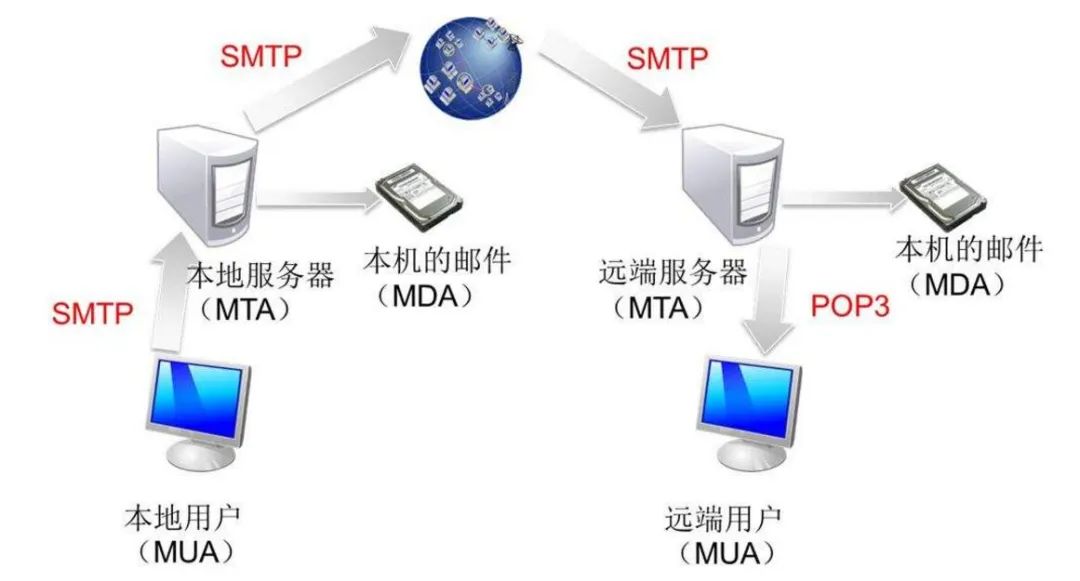
The following is a simple Python program for sending an email in HTML format:
import smtplib from email.mime.multipart import MIMEMultipart from email.mime.text import MIMEText # 创建一个带有HTML正文的新电子邮件 msg = MIMEMultipart() msg['From'] = 'sender@example.com' msg['To'] = 'receiver@example.com' msg['Subject'] = 'HTML邮件' # HTML正文 html = """ <html> <body> <h2 id="这是一个HTML邮件">这是一个HTML邮件</h2> <p>这是一个演示如何发送HTML格式电子邮件的示例。</p > </body> </html> """ # 将HTML正文添加到电子邮件中 msg.attach(MIMEText(html, 'html')) # 使用SMTP服务器发送电子邮件 server = smtplib.SMTP('smtp.gmail.com', 587) server.starttls() server.login('sender@example.com', 'password') server.sendmail('sender@example.com', 'receiver@example.com', msg.as_string()) server.quit()
In this example, we first create a new MIMEMultipart object and set some email headers.
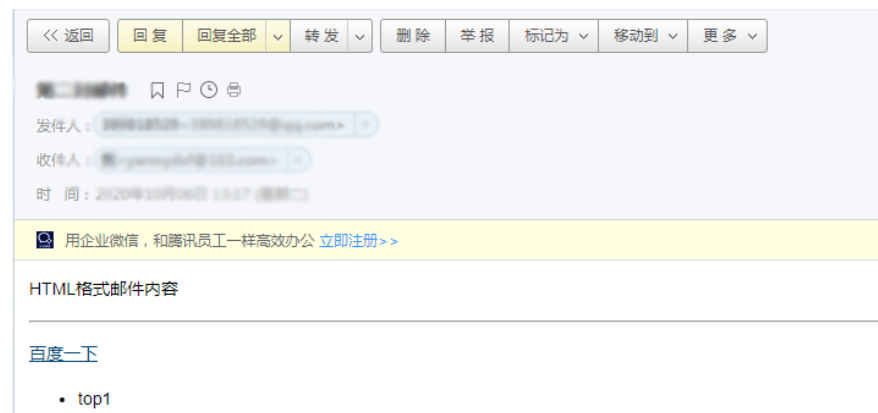
Next, we generate an HTML body and add it to the email using MIMEText. Finally, we use an SMTP server to send emails.
4. Add attachments
In addition to the HTML body, we can also add attachments to the email. For this, we need to use Python’s email library.
The following is a simple Python program for adding attachments to HTML-formatted emails:
import smtplib
from email.mime.multipart import MIMEMultipart
from email.mime.text import MIMEText
from email.mime.image import MIMEImage
# 创建一个带有HTML正文和图片附件的新电子邮件
msg = MIMEMultipart()
msg['From'] = 'sender@example.com'
msg['To'] = 'receiver@example.com'
msg['Subject'] = 'HTML邮件'
# HTML正文
html = """
<html>
<body>
<h2 id="这是一个HTML邮件">这是一个HTML邮件</h2>
<p>这是一个演示如何发送HTML格式电子邮件的示例。</p >
<p>下面是一张图片:</p >
< img src="cid:image1">
</body>
</html>
"""
# 将HTML正文添加到电子邮件中
msg.attach(MIMEText(html, 'html'))
# 添加图片附件
with open('image.png', 'rb') as f:
img_data = f.read()
img = MIMEImage(img_data)
img.add_header('Content-ID', '<image1>')
msg.attach(img)
# 使用SMTP服务器发送电子邮件
server = smtplib.SMTP('smtp.gmail.com', 587)
server.starttls()
server.login('sender@example.com', 'password')
server.sendmail('sender@example.com', 'receiver@example.com', msg.as_string())
server.quit()In this example, we first create a new MIMEMultipart object and set Some email headers.
Next, we will create an HTML body and attach it to the email using MIMEText. Next, we add an image attachment using MIMEImage and link it to the HTML body using Content-ID.

Finally, we use the SMTP server to send the email.
The above is the detailed content of How to send emotive email content and attachments in Python. For more information, please follow other related articles on the PHP Chinese website!

Hot AI Tools

Undresser.AI Undress
AI-powered app for creating realistic nude photos

AI Clothes Remover
Online AI tool for removing clothes from photos.

Undress AI Tool
Undress images for free

Clothoff.io
AI clothes remover

Video Face Swap
Swap faces in any video effortlessly with our completely free AI face swap tool!

Hot Article

Hot Tools

Notepad++7.3.1
Easy-to-use and free code editor

SublimeText3 Chinese version
Chinese version, very easy to use

Zend Studio 13.0.1
Powerful PHP integrated development environment

Dreamweaver CS6
Visual web development tools

SublimeText3 Mac version
God-level code editing software (SublimeText3)

Hot Topics
 1389
1389
 52
52
 Choosing Between PHP and Python: A Guide
Apr 18, 2025 am 12:24 AM
Choosing Between PHP and Python: A Guide
Apr 18, 2025 am 12:24 AM
PHP is suitable for web development and rapid prototyping, and Python is suitable for data science and machine learning. 1.PHP is used for dynamic web development, with simple syntax and suitable for rapid development. 2. Python has concise syntax, is suitable for multiple fields, and has a strong library ecosystem.
 Can vs code run in Windows 8
Apr 15, 2025 pm 07:24 PM
Can vs code run in Windows 8
Apr 15, 2025 pm 07:24 PM
VS Code can run on Windows 8, but the experience may not be great. First make sure the system has been updated to the latest patch, then download the VS Code installation package that matches the system architecture and install it as prompted. After installation, be aware that some extensions may be incompatible with Windows 8 and need to look for alternative extensions or use newer Windows systems in a virtual machine. Install the necessary extensions to check whether they work properly. Although VS Code is feasible on Windows 8, it is recommended to upgrade to a newer Windows system for a better development experience and security.
 Is the vscode extension malicious?
Apr 15, 2025 pm 07:57 PM
Is the vscode extension malicious?
Apr 15, 2025 pm 07:57 PM
VS Code extensions pose malicious risks, such as hiding malicious code, exploiting vulnerabilities, and masturbating as legitimate extensions. Methods to identify malicious extensions include: checking publishers, reading comments, checking code, and installing with caution. Security measures also include: security awareness, good habits, regular updates and antivirus software.
 PHP and Python: Different Paradigms Explained
Apr 18, 2025 am 12:26 AM
PHP and Python: Different Paradigms Explained
Apr 18, 2025 am 12:26 AM
PHP is mainly procedural programming, but also supports object-oriented programming (OOP); Python supports a variety of paradigms, including OOP, functional and procedural programming. PHP is suitable for web development, and Python is suitable for a variety of applications such as data analysis and machine learning.
 How to run programs in terminal vscode
Apr 15, 2025 pm 06:42 PM
How to run programs in terminal vscode
Apr 15, 2025 pm 06:42 PM
In VS Code, you can run the program in the terminal through the following steps: Prepare the code and open the integrated terminal to ensure that the code directory is consistent with the terminal working directory. Select the run command according to the programming language (such as Python's python your_file_name.py) to check whether it runs successfully and resolve errors. Use the debugger to improve debugging efficiency.
 Can visual studio code be used in python
Apr 15, 2025 pm 08:18 PM
Can visual studio code be used in python
Apr 15, 2025 pm 08:18 PM
VS Code can be used to write Python and provides many features that make it an ideal tool for developing Python applications. It allows users to: install Python extensions to get functions such as code completion, syntax highlighting, and debugging. Use the debugger to track code step by step, find and fix errors. Integrate Git for version control. Use code formatting tools to maintain code consistency. Use the Linting tool to spot potential problems ahead of time.
 Can vscode be used for mac
Apr 15, 2025 pm 07:36 PM
Can vscode be used for mac
Apr 15, 2025 pm 07:36 PM
VS Code is available on Mac. It has powerful extensions, Git integration, terminal and debugger, and also offers a wealth of setup options. However, for particularly large projects or highly professional development, VS Code may have performance or functional limitations.
 Can vscode run ipynb
Apr 15, 2025 pm 07:30 PM
Can vscode run ipynb
Apr 15, 2025 pm 07:30 PM
The key to running Jupyter Notebook in VS Code is to ensure that the Python environment is properly configured, understand that the code execution order is consistent with the cell order, and be aware of large files or external libraries that may affect performance. The code completion and debugging functions provided by VS Code can greatly improve coding efficiency and reduce errors.



